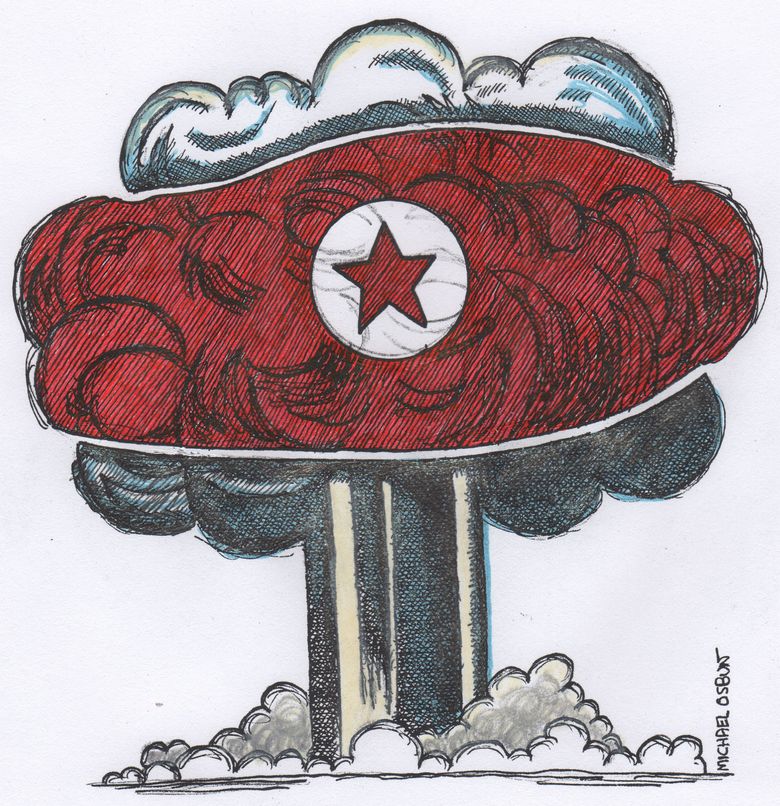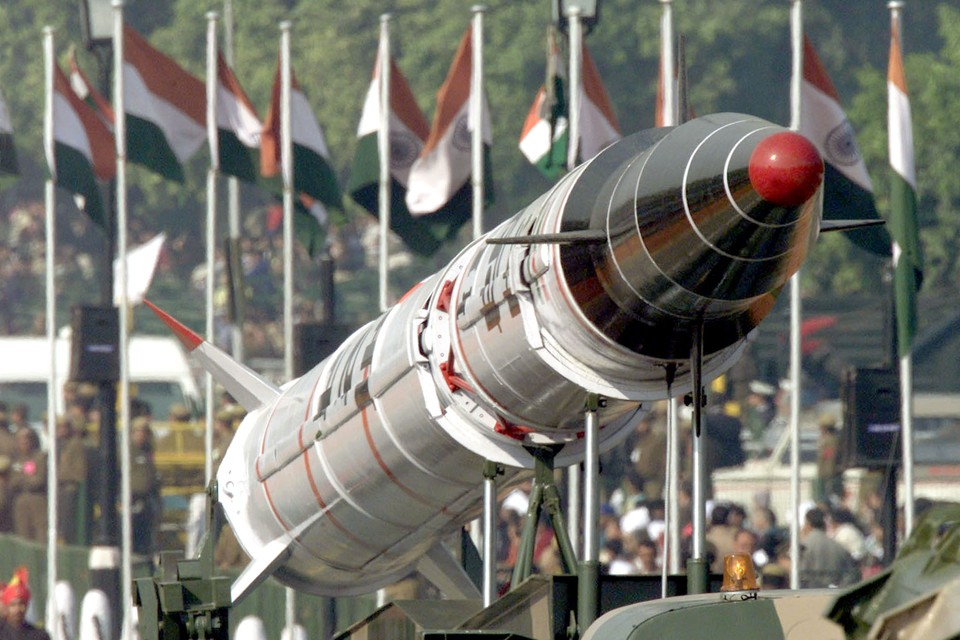As frustrating as it may seem, our long-standing strategy of containment and deterrence toward North Korea remains our best hope.By Michael Auslin

With North Korea’s latest test of an intercontinental ballistic missile, one apparently capable of reaching the U.S. West Coast, the American foreign policy community is struggling to find a way — short of war — to end the threat from Pyongyang.
In the media and behind closed doors, some are suggesting that the U.S. should approach China for a grand bargain.
The idea is deceptively simple: China would intervene in North Korea, most likely by removing Kim Jong Un from power and installing a puppet in his place.
In return, the U.S. would withdraw or significantly reduce our forces in South Korea and potentially forces farther afield in Asia.
This may sound like an effective, realpolitik means of breaking a decades-long stalemate.
After all, American presidents have been saying for years that China is the key to solving the North Korea puzzle.
Such a pact would force Beijing into taking action rather than offering platitudes.
It would also end the charade of American sanctions, which are regularly watered down or undercut by China and Russia.
Most of all, it would rid the world of Kim — a brutal, dangerous despot — and end his family’s absolute rule.
But in reality, a grand bargain with China is likely to destroy America’s global influence, making it impossible for Washington to maintain stability in strategic areas, particularly in Asia and Europe. Indeed, merely proposing an agreement of this sort would make the U.S. into a paper tiger and compromise American credibility in Asia and around the world.
A grand bargain would effectively transfer America’s dominance to China.
No matter how the White House spun such a deal, world leaders would infer that the U.S. had gone hat in hand to China.
Recognizing China as the true foreign power on the peninsula, South Korea and other Asian nations would tilt inevitably toward Beijing.
It’s also possible that South Korea and Japan, among other countries, would decide that they had no choice but to develop nuclear weapons for their own national defense.
Moreover, having seen the U.S. kowtow, Beijing would likely take a more assertive posture in the South China Sea and push Washington further, demanding a more comprehensive drawdown of American military forces from East Asia.
Even if Washington refused to buckle, Sino-U.S. relations would enter a period of heightened tension and antagonism, undoubtedly encouraging both Moscow and Tehran to double down on their destabilizing behavior.
In short, a bargain would spell serial diplomatic failure for the U.S.
As frustrating as it may seem, our long-standing strategy of containment and deterrence toward North Korea remains our best hope.
This strategy will test our patience, but there are a few policies the White House can adopt to make its position more credible.
First, Washington ought to acknowledge openly that North Korea is a country with weapons of mass destruction that can strike not just other Asian countries, but also the continental United States. Washington also needs to end the fantasy of North Korean denuclearization, which, short of all-out war, will never happen.
That will at least free up American diplomats from endless, meaningless negotiations.
It is better to be feared by Pyongyang than held in contempt for our willingness to believe that it might one day give up its nuclear program.
Second, the U.S. should announce an assured destruction policy in response to any use of nuclear weapons by the North.
If Pyongyang has no intention of using its weapons, then we have little to worry about.
But if Kim is tempted to do so, our threat may give him pause, or create rifts within the elite that could result in Kim being neutered.
This move would also outflank any attempts at nuclear blackmail by Kim, since Washington would make clear that the use of nuclear weapons would result in the complete destruction of his regime.
Finally, the Trump administration would be wise to commit to a comprehensive missile-defense program in order to defend against North Korea’s relatively limited, though lethal, ICBM capability.
The cost of exploring all possible means of missile defense, including air-based and space-based directed-energy weapons, is a small investment next to the potential of a catastrophic war.
Acknowledging our diplomatic failures and taking these steps would increase our chances of containing North Korea.
The alternative — a misguided and rushed grand bargain with China — would do little to end Pyongyang’s threat, and almost certainly would spell the end of American global primacy, leaving the world a far more uncertain and unstable place.


